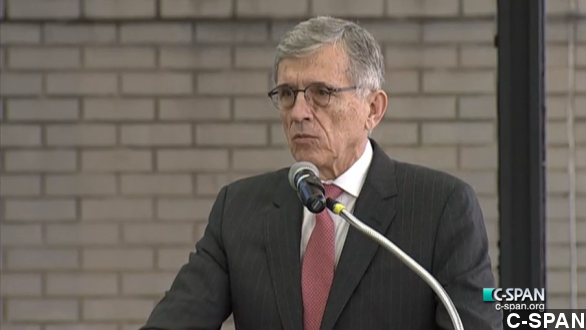FCC Chairman Tom Wheeler is sticking to his guns.
He issued a blog post Tuesday defending his plans for Net neutrality. Wheeler intends to take the Federal Communications Commission forward with new rules for the open Internet, despite public concern over how this could create a "pay-to-play" scenario.
"The idea is there will be a fast lane that certain companies will be able to pay to be in. Companies would have to have the rights to buy it on a 'commercially reasonable basis.' Not clear what that is." (Via CNBC)
Wheeler says the measure is part of the FCC's search for the best way to protect the open Internet, but concedes: (Via C-SPAN)
"If the proposal before us now turns out to be insufficient or if we observe anyone taking advantage of the rule, I won't hesitate to use Title II."
That's Title II of the Telecommunications Act of 1996 — legislation that would reclassify Internet service providers as utilities, like the phone companies, and subject them to stricter FCC regulation. (Via Federal Communications Commission)
It's exactly what proponents of Net neutrality wanted from the start, and commentariat the Internet over are pointing out the irony: Hesitate is exactly what Wheeler has done from the start.
Wheeler does go on to list other requirements ISP would have to adhere to. Actions are not "commercially reasonable" if they harm the consumer, like — for example — degrading other service to create a "fast lane"; if they harm competition; if they provide priority access to affiliate programs; or if they curb free speech or civic engagement. (Via CNET)
BGR's Brad Reed compares Wheeler's rules to the AT&T-T-Mobile merger in that they "propose giving a powerful corporate interest something it wants in exchange for agreeing to live under the vague threat of future regulations that depend entirely on the whims of the regulators who may or may not feel like enforcing them."
But for the moment, the proposal remains just that: a proposal, subject to approval from the rest of the FCC commissioners. A vote is scheduled for May 15.


